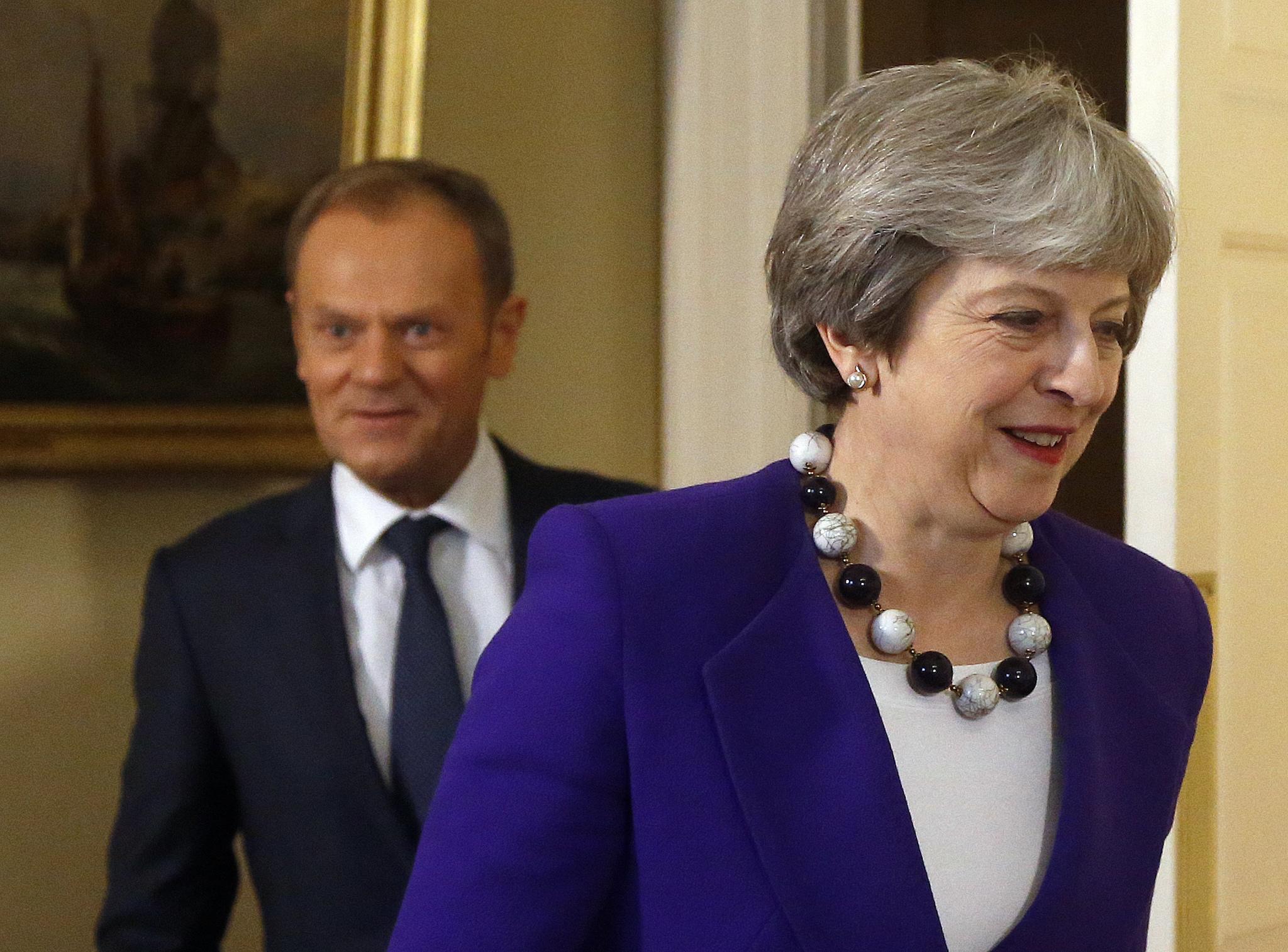The EU guidelines give some grounds for hope over Brexit – it turns out they also want to cherrypick
It all suggests the EU is being driven by the mostly practical and pragmatic approach of Chancellor Angela Merkel

It has been easy, at times comically so, to parody the UK’s Brexit negotiating stance as “cherrypicking”. Too little attention has been focused on the European Union’s tendencies in the same direction. The latest draft guidelines for the EU’s negotiating team, however, have some unmistakably picky features to them. As Theresa May said in her Mansion House speech last week, every trade agreement involves “cherrypicking”, an unusually sharp line from her.
The problem is that the UK and EU’s respective choice of cherries are mostly incompatible and, so far as London is concerned, the EU enjoys the advantages of negotiating leverage afforded by the short timescale and the sheer economic size of the world’s largest trading bloc.
If this is a negation rather than a dialogue of the deaf, there were some encouraging moves, notwithstanding some downbeat mood music being played by Donald Tusk, President of the EU Council. In the EU’s guidelines there is an explicit commitment to include trade in services in an UK-EU free trade agreement; there is a pledge to achieve an air transport agreement; and to permit UK participation in various EU research, innovation, education and cultural schemes, albeit with a subscription fee attached.
Tellingly, too, the EU expressly stated its interest in preserving reciprocal rights to fishing fields, and maintaining cooperation in security, defence and foreign policy, and across police and judicial cooperation. Professional qualifications would be mutually recognised, and these would be “easy wins”, and early ones, in the forthcoming talks. It demonstrates that the British deal will be unique, or bespoke, and not copied-and-pasted from any other existing template.
It all suggests the EU is being driven by the mostly practical and pragmatic approach of Chancellor Angela Merkel, who has made plain what her priorities are. Less happily, it also reflects her adamantine insistence on the sanctity of the EU’s four freedoms – of movement of capital, goods, services and people. The EU document states that “there can be no "cherrypicking" through participation based on a sector-by-sector approach, that would undermine the integrity and proper functioning of the single market”. That, it has to be said, immediately precedes a lengthy list of sectors which the EU would indeed like to cherrypick from its existing arrangements with the UK.
Hypocritical or not, it highlights the extent of the gulf that still remains between the two sides, and, as Mr Tusk reminded the British, the “negative economic consequences” that will flow form any species of Brexit. The EU has rejected the notion Ms May presented of the UK having associate membership of EU agencies, because the Chancellor, Philip Hammond made a case for financial services to be included in the UK-EU deal, and offered what seems a reasonable solution of mutually agreed “rulebooks” and intense regulatory cooperation with stable structures for agreement and arbitration of disputes. He pointed out, not for the first time, that such a partnership is in the interests of everyone.
So far the EU hasn’t shown much enthusiasm or sympathy for the British policy, and both sides have acknowledged that current “passporting” privileges for UK institutions will come to an end. As with much else, whatever does end up being agreed this will damage the UK’s £20bn trade surplus in financial services with the EU. It will, in other words, erode the City’s competitive advantage and the jobs, prosperity and tax revenues that it brings.
The most uncomfortable part of the EU’s guidelines relates to what the EU will and will not tolerate in terms of future British economic policy. Eurosceptics often say that the EU “fears” that Britain would become some sort of super-competitive economic powerhouse off their north-west shore, grabbing markets and sucking in investment form the EU27. That is far-fetched, but the EU is perfectly clear that it wants a post-Brexit “level playing field”, and wishes to prevent any “unfair competitive advantage” via “undercutting of current levels of protection with regard to competition and state aid, tax, social, environment and regulatory measures and practices”.
Breaking such conditions would, presumably, lead to withdrawal of certain trading arrangements that have been agreed with the UK, the so-called “punishment clause”, though it is not explicitly put like that on this occasion. The upshot is that if a future Conservative government wanted to create an ultra-low tax economy, or a future Corbyn-led Labour government wanted to use state aid for, say, the steel industry, then it would have to risk sanctions of some kind being imposed by our largest trading partner. In which case, many more people will be asking what the point of Brexit is anyway. Except that by then it will be far too late.
Join our commenting forum
Join thought-provoking conversations, follow other Independent readers and see their replies
Comments
Bookmark popover
Removed from bookmarks